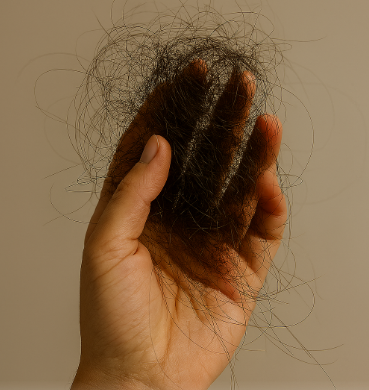Hair loss, a common concern affecting both men and women, has long been a subject of interest for naturalists seeking non-invasive, holistic solutions. This essay explores the multifaceted approach naturalists take to confront hair loss, drawing from the wisdom of renowned natural health advocates and the latest scientific research.
Understanding Hair Loss
Before delving into natural remedies, it's crucial to understand the causes of hair loss. Androgenetic alopecia, the most common form, is primarily caused by genetics and hormonal influences. Other factors include stress, poor nutrition, environmental toxins, and scalp conditions like seborrheic dermatitis or psoriasis. Naturalists often emphasize addressing these underlying causes rather than merely treating the symptoms.
Nutrition: The Cornerstone of Hair Health
Naturalists like Dr. Andrew Weil and Dr. Joseph Mercola emphasize the importance of nutrition in hair health. A balanced diet rich in vitamins, minerals, and phytonutrients promotes hair growth and prevents loss. Key nutrients include:
- Protein: Hair is primarily composed of protein, so adequate intake is crucial. Found in lean meats, poultry, fish, eggs, beans, and nuts.
- B vitamins: B6, B12, and biotin play vital roles in hair growth. Found in whole grains, leafy greens, and fortified cereals.
- Vitamin C: Necessary for collagen production, which strengthens hair strands. Found in citrus fruits, berries, and leafy greens.
- Vitamin D: May play a role in hair cycling and growth. Obtained through sunlight exposure and found in fatty fish, egg yolks, and fortified dairy products.
- Vitamin E: Helps improve blood circulation to the scalp, promoting hair growth. Found in nuts, seeds, avocados, and spinach.
- Iron, zinc, and magnesium: Deficiencies in these minerals can lead to hair loss. Found in red meat, poultry, beans, nuts, and whole grains.
A Review of Naturalists views
Herbalists like Rosemary Gladstar and David Hoffmann recommend various herbs to promote hair growth and prevent loss:
- Rosemary (Rosmarinus officinalis): Stimulates hair growth and darkens gray hair. It can be used as a hair rinse or infused oil.
- Saw Palmetto (Serenoa repens): An anti-androgenic herb that blocks the conversion of testosterone to dihydrotestosterone (DHT), a hormone linked to hair loss.
- Nettle (Urtica dioica): Rich in minerals and silica, which strengthen hair strands and promote growth.
- Burdock (Arctium lappa) and Dandelion (Taraxacum officinale): Both are blood purifiers that may help improve scalp health and promote hair growth.
Essential Oils
Aromatherapists like Gabriel Mojay and Robert Tisserand recommend essential oils for hair loss:
- Peppermint (Mentha × piperita) and Eucalyptus (Eucalyptus globulus) oils: Stimulate the scalp, promoting hair growth and preventing loss.
- Lavender (Lavandula angustifolia) and Rosemary oils: Improve blood circulation to the scalp, promoting hair growth and preventing loss.
Scalp Care and Lifestyle Changes
Naturalists emphasize the importance of scalp health and overall well-being:
- Scalp massage: Improves blood circulation and promotes hair growth. It can be done using fingertips or a scalp massager tool.
- Avoid tight hairstyles and excessive heat: These can damage hair follicles and lead to hair loss.
- Manage stress: Chronic stress can lead to telogen effluvium, a condition that causes hair loss. Techniques like meditation, yoga, and deep breathing exercises can help manage stress.
- Limit exposure to environmental toxins: Environmental toxins can disrupt hormone balance and contribute to hair loss. Naturalists recommend using organic personal care products and avoiding exposure to environmental pollutants.
Detoxification
Naturalists like Dr. Mark Hyman and Dr. David Perlmutter emphasize the importance of detoxification in maintaining overall health, including hair health. They recommend strategies like intermittent fasting, infrared sauna use, and consuming detoxifying foods to eliminate toxins that may contribute to hair loss.
Conclusion
Naturalists confront hair loss through a holistic approach that emphasizes nutrition, herbal remedies, essential oils, scalp care, and lifestyle changes. By addressing the underlying causes of hair loss and promoting overall health, naturalists offer a comprehensive, non-invasive solution to a common concern. While more research is needed to validate some of these approaches, the growing body of evidence supports the efficacy of natural remedies in preventing and treating hair loss.
